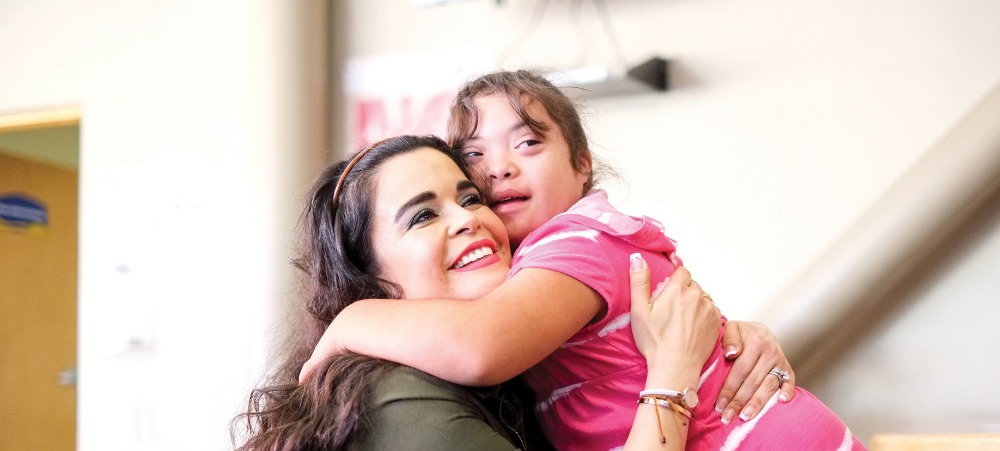Almost every mom gets herself into a twist if her baby or child is not reaching milestones according to the so called norm, wanting to know if her child is just late to reach those milestones or if there may be a more serious cause for this.
While the majority of babies and children reach their milestones at the average age, there will be some babies that reach their milestones much earlier and some that just lag behind the rest. There is usually no need for alarm, they are just late bloomers and will get there in their own time.
What is important to look out for is that your baby or child is developing and gaining new skills, even if they are a little slow to reach milestones. Some babies will start crawling late, or not even at all, yet start walking earlier than the norm.
If your baby is making progress overall then chances are there is nothing to be concerned about.
That said if you are concerned about anything it is best to take your baby for a check up since if there is any sort of developmental delay or disability it is always best to know about it as early as possible. Early diagnosis means that interventions with autism doctors and specialists can be implemented and outcomes can be improved drastically.
You will also need to learn about special needs parenting and how you can help your child.
Complex disorders of brain development are now classified under the broad terms of Autism Spectrum Disorder (ASD) and Autism. This means that autistic disorder, childhood disintegrative disorder, pervasive developmental disorder-not otherwise specified (PDD-NOS) and Asperger syndrome all fall under the broad spectrum of Autism Spectrum Disorder.
Autism is a neurodevelopmental disorder characterized by impaired social interaction, verbal and non-verbal communication, and restricted and repetitive behavior.
If your child does have autism it will make the world of difference if you can start behavioral therapy before 18 months of age. What makes this tricky is that very often the most obvious signs and symptoms of autism tend to emerge between the ages of two and three years old.
According to Connecticut & Golf Coast ADHD Associates:
Autism spectrum disorders are lifelong conditions with no known cure. However, children with ASD can progress developmentally and learn new skills. Some children may improve so much that they no longer meet the criteria for ASD, although milder symptoms may often persist.
What are Early Signs of Autism in Children?
The earliest signs of autism in children involve the absence of normal behaviors as opposed to the presence of abnormal behaviors. Since autistic babies are very often quiet and undemanding parents may think that they have an easy baby and not realize that there is a problem.
It is very common for autistic babies to not respond to cuddling, not reach out to be picked up and not to make eye contact with anyone.
Early signs that your baby may have autism are when your baby or toddler does not:
- follow objects or your movements visually, or does not visually follow where you point
- use gestures to communicate such as waving goodbye or pointing
- respond to the sound of your voice or respond to being called by name
- make eye contact with you
- reach out to you when being picked up
- respond to or initiate cuddling
- make noises to grab your attention
- play with other people
- show enjoyment or interest
- imitate facial expressions and gestures
- care or even seem to notice if you get hurt or are upset in any way
The following symptoms are cause for concern, so you should take your baby to be evaluated:
- No big smiles or signs of happiness and enjoyment by the age of 6 months
- Does not interact by sharing sounds and smiles, and imitating of other facial expressions by 9 months old
- Your baby does not respond to his or her name by one year old
- Your baby does not make any noises or “baby talk” by one year old
- Your baby does not make any gestures such as waving, pointing. reaching or showing by one year old
- Your baby does not speak any words by 16 months old
- Your baby does not speak any meaningful two word phrases that are not imitating or repeating by two years old
While some babies and toddlers just develop later than others, if you are worried about anything take your child to be checked out. It is better to be safe than sorry later on, especially since the younger the child is when autism is diagnosed the better.
It is also vital as a mother or father to trust your own instincts, so get a second opinion from a child development specialist if you are not sure about a diagnosis.
As children get older the signs for autism become more diversified and noticeable. Impaired social skills, non-verbal communication difficulties, inflexible behavior and speech and language difficulties are typical signs of autism.





